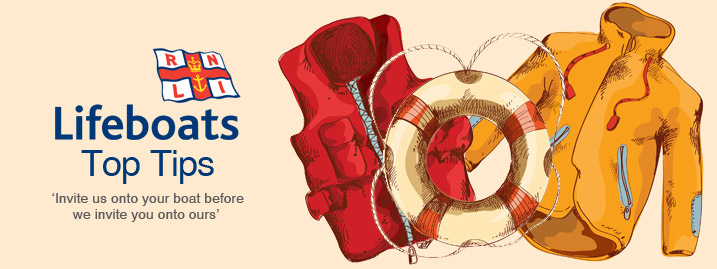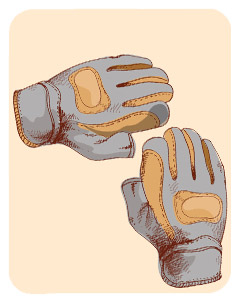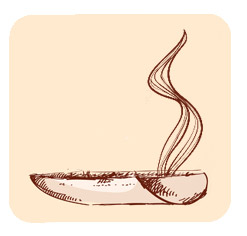
RNLI Top Tip 2- Check your engine and fuel
A third of lifeboat launches each year are to vessels suffering machinery failure or simply running out of fuel. Many of these breakdowns could have been prevented if the engine had been checked before setting off, Make sure your engine is properly serviced at the beginning of the season and that you carry out regular checks on it throughout the year.

Before departure:-
- Work out how much fuel you need. Calculate one third for the way there, one third back and one third spare. A second or auxiliary engine can save the day should your main engine fail. Make sure you carry enough fuel for the auxiliary as well.
- Look for tell tale signs of oil or fuel leaks. A reasonably clean engine will help with that check.
- Check the cooling water piping for signs of trouble such as perishing or weeping hoses.
- Inspect the cooling system’s raw water strainer and remove any debris that could restrict the flow.
- If the engines have a freshwater side to the cooling system, check the level of coolant. Don’t remove the cap when the engine is hot.
- Take a quick look at the drive belts. Are they frayed, cracked or slack? If so they need replacing or tightening.
- Check the fuel filter for sediment or water. A build up of either warns you that your fuel supply is not clean.
- Remove the engine’s dip stick and check the level of lubricating oil. Top it up if necessary.
- On an inboard petrol engine fans should be turned on for at least a couple of minutes to clear the compartment of fumes before you turn the ignition key.
- Check that the engine compartment is clean and dry. Petrol engines are particularly susceptible to water in the bilge. Use a pump and sponge to dry the engine compartment.
- Make sure you have the right tools and spares to carry out basic engine maintenance or to make running repairs if necessary. Owners tend to accumulate tools. Make sure your tools fit the current engine. Imperial spanners for older engines are of little value when running a modern, metric engine.
- After starting check that cooling water is coming out of the exhaust or the outboard telltale.
- Check for fuel or water leaks
- Be aware of any unusual vibration.
- On passage regularly look in the engine compartment to check all is well.
- Regularly scan the engine instruments to make sure they are reading at normal levels. Some people paint a small mark where the level should be.
- Don’t run the engines continuously at full throttle as this burns fuel excessively.
Consider attending a one day RYA diesel engine maintenance course. What does your Club offer?
The RNLI has produced simple leaflets on outboard and engine leaflets. Contact your local lifeboat station for your copies.
Duty Paid?
Whilst not a safety issue, when you refuel, retain the receipt. This can then be used on the continent as proof that you have paid the appropriate duty. Red diesel in the main propulsion fuel tank is OK but spare cans are not acceptable on the continent even with proof that duty has been paid.

Engine Failure?
Engine failure alone is not a distress situation. It does not warrant a Mayday radio message or the use of red flares, unless lack of power puts the boat or its crew in grave and imminent danger.
If your engine breaks down at sea it is important to take some safety measures.
- Can you find and fix the problem yourself? Check fuel, oil, air, cooling water and correct operating procedures. If you can - fix the problem. If not - consider alternatives, such as using the dinghy and outboard motor to tow the parent craft.
- Is there an alternative - sails, other engine, outboard motor, oars? In open water it may be acceptable to drift while you assess the problem and attempt repairs. If not - anchor your vessel.
- If you are unable to fix the problem or use alternative power, inform the coastguard.
- If you are in a particularly hazardous area such as traffic separation scheme, port approach or channel, inform the Harbour Master or Coastguard by VHF radio or mobile phone.
Follow Up
If you want to follow up any of these points or have any other sea safety issues don’t hesitate to contact the Lifeboat Sea Safety Officer at your local Lifeboat station. If there is not one appointed yet the station can give you a contact in a nearby station who will be only to happy to help in any way. Free sea safety advice is always available.
‘Invite us onto your boat before we invite you onto ours’
Read More
Thanks to the author, PT Corner, for permission to publish this article.